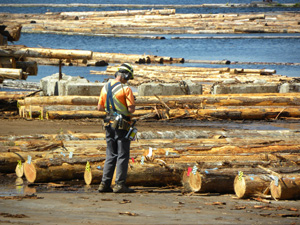 Also referred to as the European Illegal Timber Regulation (EUITR), is fully implemented from 3 March 2013; full details and the document itself, if you are not already in possession of it, can be found at:
Also referred to as the European Illegal Timber Regulation (EUITR), is fully implemented from 3 March 2013; full details and the document itself, if you are not already in possession of it, can be found at:
http://ec.europa.eu/environment/forests/timber_regulation.htm
On 1 January 2021, EUTR became UK domestic legislation as the UK Timber Regulations (UKTR), which have the same requirements as current EU systems.
European Timber Regulation – Brief Summary
The EUTR:
- It prohibits the placing on the EU market for the first time of ‘illegally harvested’ timber and products derived from such timber;
- It requires EU traders who place timber products on the EU market for the first time (identified as ‘operators’) to exercise ‘due diligence’.
The EUTR is legislative and not prescriptive; it remains the responsibility of an operator to determine, develop, implement and maintain (with or without the involvement of a ‘monitoring organisation’) a ‘due diligence system’ appropriate for their purposes in meeting all their obligations under the EUTR and using whatever information is available to them.
It is also system-based and not product-based, with due process being focussed on the operator’s due diligence system and not on the regular monitoring of goods as they enter into the EU.
Incumbent upon the operator (or monitoring organisation) is also the requirement that the due diligence system should be evaluated at regular intervals to ensure that those responsible are following the procedures which apply to them and their desired outcome is being achieved. Good practice suggests this should be conducted annually – unless circumstances change which would necessitate a more frequent evaluation.
So, it is not the products which will be ‘EUTR compliant’ but the operator and with regard to both their due diligence system (DDS) and their compliance with it.
And whilst wood and wood products cannot be ‘compliant’ and should not be indicated as, or marked as, being EUTR compliant, they can be ‘non-compliant’, i.e. illegally harvested.
For the benefit of operators importing timber and wood-based products from Canada you will find in these few pages information to assist you in complying, relatively simply, with your obligations as an operator under the EUTR and the requirement for demonstration of due diligence.

